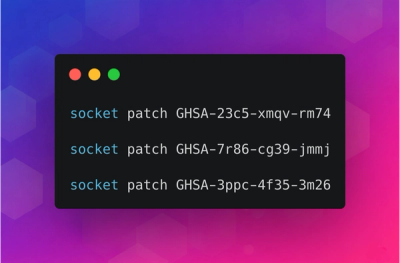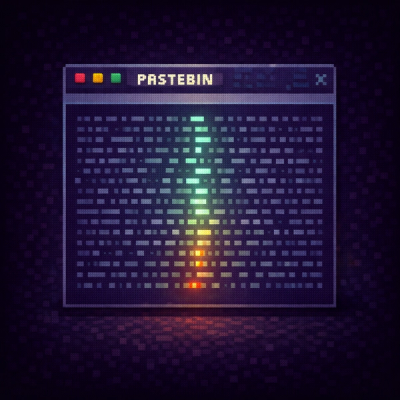
Security News
minimatch Patches 3 High-Severity ReDoS Vulnerabilities
minimatch patched three high-severity ReDoS vulnerabilities that can stall the Node.js event loop, and Socket has released free certified patches.
Time based event loop process queue
Install the module with: npm install compulsive
Wait ms, execute callback.
Loop ms, execute callback.
Repeat count times, every ms, execute callback.
Queue tasks.
// list
[
{
wait: ms,
task: function() {}
}
...
]
var compulsive = require("compulsive");
compulsive.wait( 10, function() {
// Will execute in 10ms
// ... doesn't use setTimeout.
});
compulsive.loop( 50, function( control ) {
// Will execute every 50ms
// ... doesn't use setTimeout or setInterval.
// The loop can be stopped via:
control.stop();
});
compulsive.repeat( 5, 100, function( control ) {
// Will execute 5 times, every 100ms
// ... doesn't use setTimeout or setInterval.
// The repeater loop can be stopped via:
control.stop();
});
compulsive.queue([
{
wait: 100,
task: function() {
// 100 from call to execution
}
},
{
wait: 200,
task: function() {
// 100 + 200 = 300ms from call to execution
}
}
]);
Add compulsive api to your constructor's prototype:
var compulsive = require("compulsive"),
priv = new require("es6-collections").WeakMap();
function Nodebot() {
//... various nodebot constructor tasks
this.servos = {
right: new Servo(9),
left: new Servo(10)
};
priv.set( this, {
step: null
});
}
// Exposure grants the end dev control
// over stepping positions (0-180˚)
Nodebot.STEPS = {
// Step: [ R, L ]
right: { right: 120, left: 60 },
left: { right: 60, left: 120 }
};
// Augment the Nodebot prototype
// with compulsive APIs
[ "wait", "loop", "queue" ].forEach(function( api ) {
Nodebot.prototype[ api ] = compulsive[ api ];
});
Nodebot.prototype.step = function() {
var p, next, last, degrees;
p = priv.get(this);
last = p.step;
next = last === "right" ? "left" : "right";
degrees = Nodebot.STEPS[ next ];
Object.keys( this.servos ).forEach(function( servo ) {
servo.move( degrees[ servo ] );
});
};
Nodebot.prototype.walk = function() {
this.loop( 1000, this.step.bind(this) );
};
module.exports = Nodebot;
var Nodebot = require("nodebot"), ,
bot = new Nodebot();
bot.walk();
All contributions must adhere to the the Idiomatic.js Style Guide, by maintaining the existing coding style. Add unit tests for any new or changed functionality. Lint and test your code using grunt.
Copyright (c) 2012 Rick Waldron waldron.rick@gmail.com Licensed under the MIT license.
FAQs
Time based event loop process queue
We found that compulsive demonstrated a not healthy version release cadence and project activity because the last version was released a year ago. It has 1 open source maintainer collaborating on the project.
Did you know?

Socket for GitHub automatically highlights issues in each pull request and monitors the health of all your open source dependencies. Discover the contents of your packages and block harmful activity before you install or update your dependencies.

Security News
minimatch patched three high-severity ReDoS vulnerabilities that can stall the Node.js event loop, and Socket has released free certified patches.

Research
/Security News
Socket uncovered 26 malicious npm packages tied to North Korea's Contagious Interview campaign, retrieving a live 9-module infostealer and RAT from the adversary's C2.

Research
An impersonated golang.org/x/crypto clone exfiltrates passwords, executes a remote shell stager, and delivers a Rekoobe backdoor on Linux.